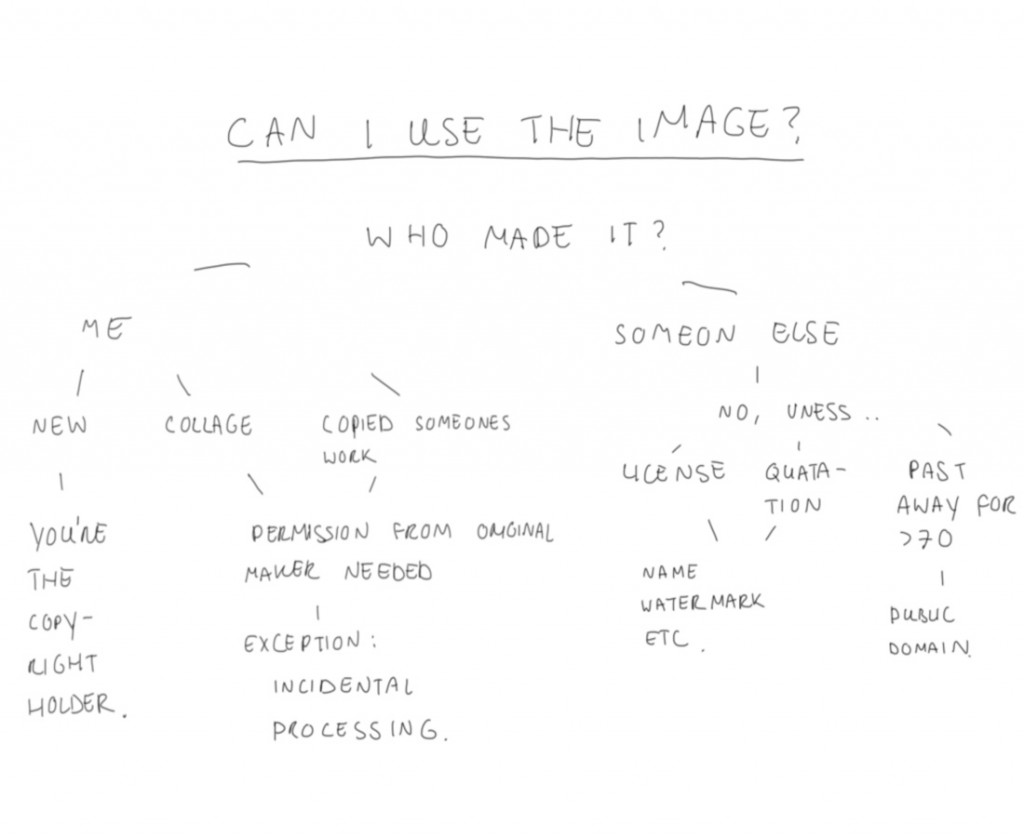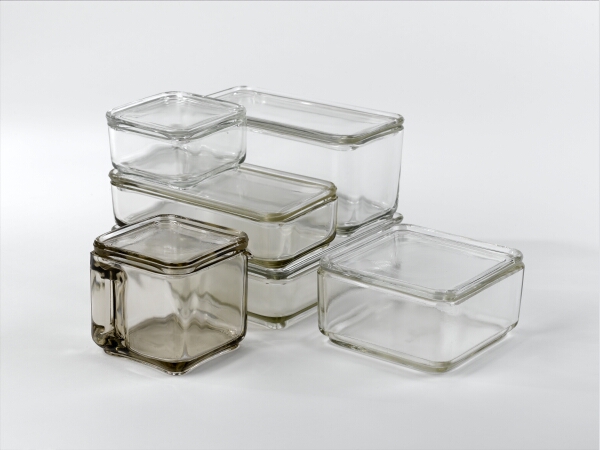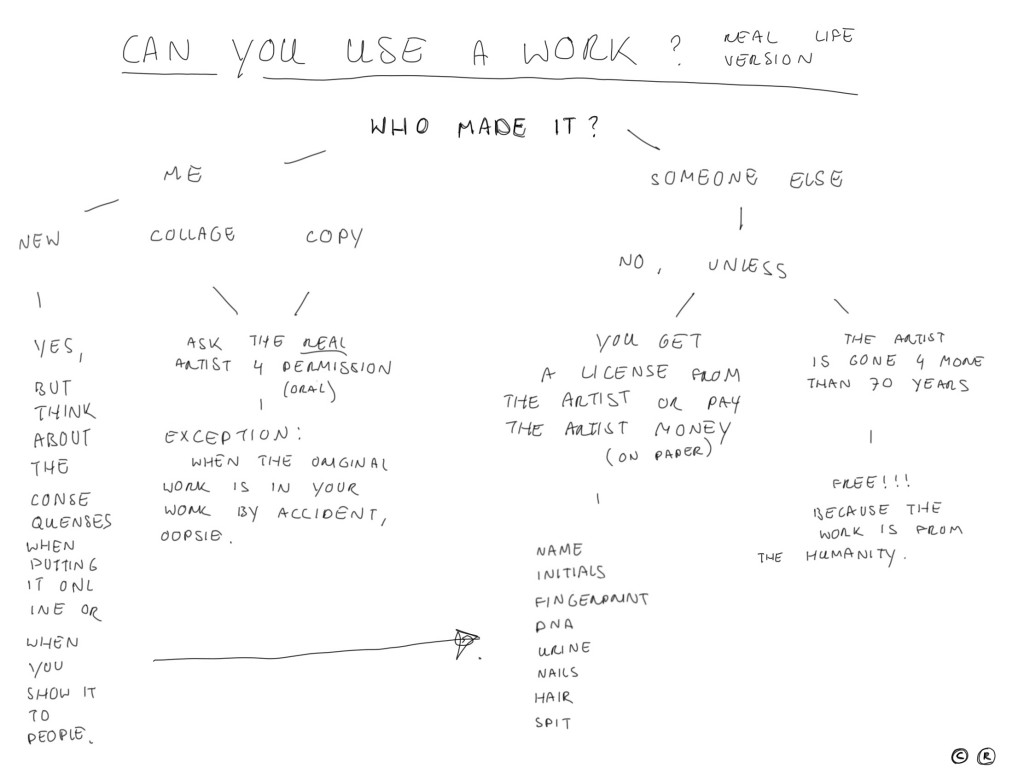The other day I was working on this essay, or what I thought it would become this essay, and I bumped into something. I saved an image of the artwork “Kubus Geschirr” from Wihelm Wagenfeld on google to add in pages. But while in pages, I couldn’t find this saved image anymore.
Weird technology.
So I tried something different, I made a screenshot of the image on google. But, while I did this, the internet immediately brought me to a page about:
fair use.
Never heard of it.
My original plan to write about the differences or similarities on how “Kubus Geschirr” from Wilhelm Wagenfeld, appears on the internet and in books got replaced for my interest in the world of fair use.
c/o Pictoright, SM Amsterdam 2004
Fair use has a few similarities with copyright. You use the term fair use if something is a small part of a copyrighted work, you don’t have to ask permission or pay a fee to use it. Where as with copyright you have these five restrictions:
- Check who owns it
- Get permission to use it
- Give credit to the creator
- Buy it
- Use it responsibility
But with fair use, its slightly different. If for example an image has a fair use coat over it, you can use it for education, news reporting, criticizing/commenting and comedy/parody. In comparison to copyright, fair use has some rules as well:
- It has to be a small part of a bigger thing
- It has to have a new meaning, it has to be original
- It has to be a “rework”
- It is non profit (no fee)

These are the words from someone else, but I remade it, so it's a fair use.
If you ask me, this is al about respect and owning.
Its about getting the credits for something YOU have made and YOU have brought into the internet, you did it, so you want to be sure the credits are still given to yourself. Wait, but you don’t have to pay for it if you made a new work out of it, because then its fair law. ???.
As you can maybe sense I get a little bit confused about this. I’ve never experienced copy right. There are parts of it that I get, but also parts I really don’t get.
It’s interesting to think about it.
Why would it be so important to get credits for your own work? Is it about self-respect and pride? You’re proud of something you’ve made and you want to show it to the world, but you’re also too jealous when someone tries to steal your work/idea so you put a watermark on it and do something with copyright so you can control it.
I spoke a friend from high school about this subject. She always wanted her friends to put her name in the description or tag her when we putted a photo she made on instagram. I thought it was lame, just be proud you made this photo and own it that way.
I recently asked why she wanted the credits for making the picture. Her answer was that she compares this issue with artists that put their initials on their work or musicians who put their name on their album cover. She sees it as an appreciation for the work she has made and that she would think, I would also like to get that recognition for my work.
Yes, I agree actually. I love when people like my work, so of course I want my name on there. Its a kind of attention your sometimes longing for. Some people more than other, but I dare to say its human.
I asked her later how the internet changes this issue. She thinks that on the internet stealing is easier, which makes you want to have good copyright, to prevent this.
So there is a difference between copyrighting on the internet and in real life. On the internet you can be anonymous and steal someones work within copy and paste. You can steal world wide and also publish world wide. And you can punish someone from stealing your work to ask for a fee and get it of the internet.
In real life its you’re own social circle you’ll steal in, its harder to be anonymous and also harder to publish. When you want to confront someone with it, you’re having a conversation. But on the other hand, making a picture or a copy of something specific in a book is really easy to do and also easy to spread around.
In both worlds we have to deal with copyright, but in these worlds there are different approaches. I feel like on the internet the feeling is more intense, because copyright is a big deal on the internet. It’s less personal, but it is personal. Copyright makes it personal and tender. In real life, in books, copyright violations are harder to detect and easy to do. Again, in both worlds you want to publish your work, get recognition, but also know that someone can use your work for other purposes. It’s a decision you make.
My suggestion is to apply copyright in the real life-life:
Copyright is the new self respect.
Like and copyright.


